PsychNewsDaily Publishers
100 Summit Drive
Burlington, MA, 01803
Telephone: (320) 349-2484
PsychNewsDaily Publishers
100 Summit Drive
Burlington, MA, 01803
Telephone: (320) 349-2484
North Dakota offers various accessible mental health services, including crisis intervention, counseling, and support programs, regardless of insurance status or income level.
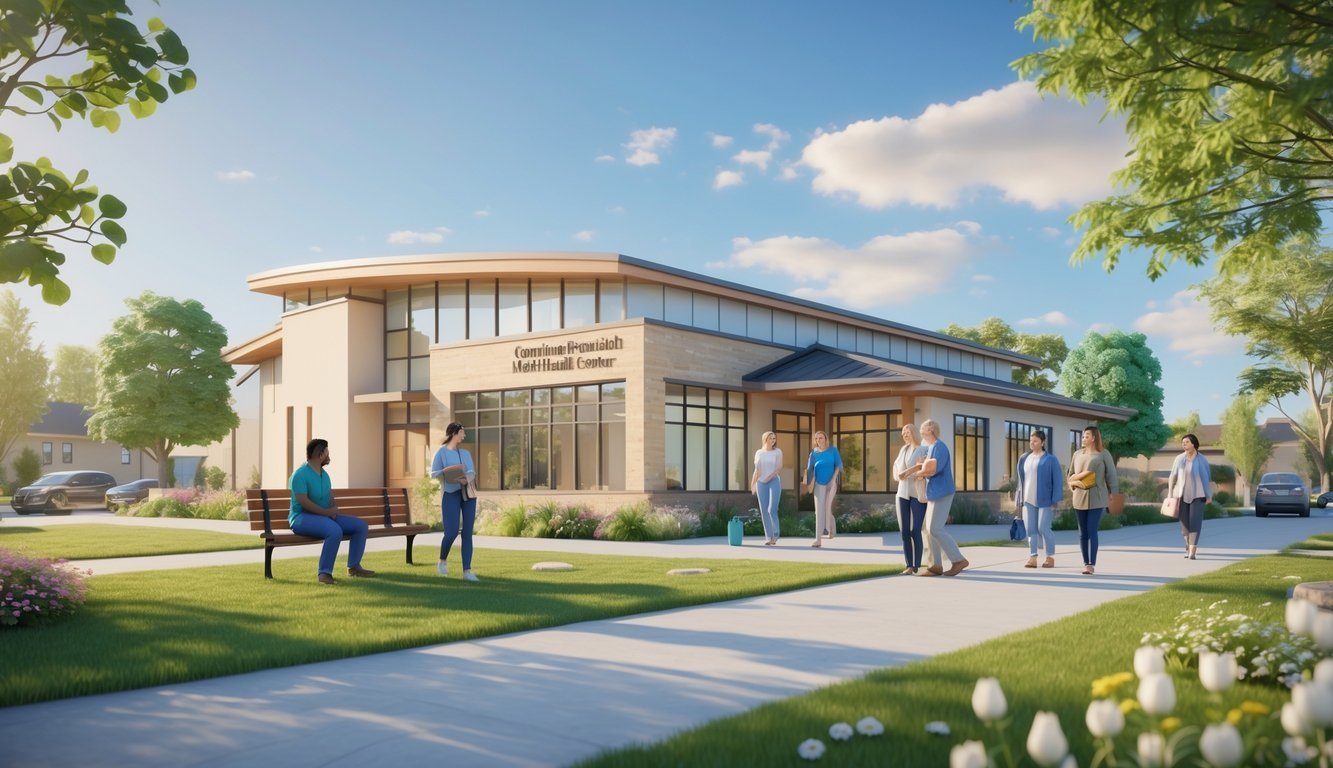
Getting mental health support shouldn’t depend on your wallet. In North Dakota, you’ll find several ways to get help for free, whether you’re facing a crisis or looking for ongoing care to keep your wellbeing on track.
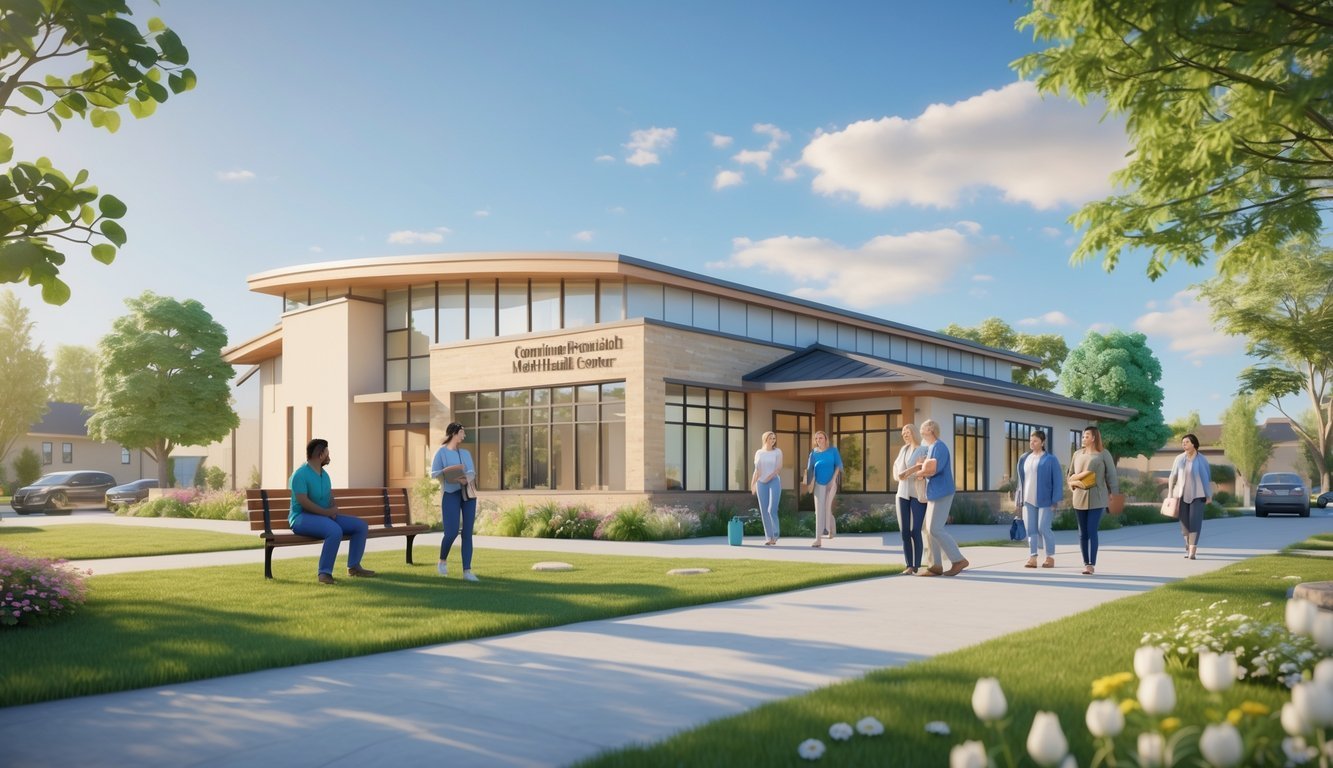
You can get free mental health services across North Dakota through state programs, community health centers, university clinics, and support networks that don’t require insurance or upfront payment. Many of these places offer counseling, psychiatric evaluations, and crisis help around the clock.
If you’re in a mental health crisis or just need steady support for depression or anxiety, knowing your options can help you connect to the right people. From walk-in crisis centers to specialized recovery programs for adults with serious mental illness, North Dakota’s system gives you several ways to get the care you need.
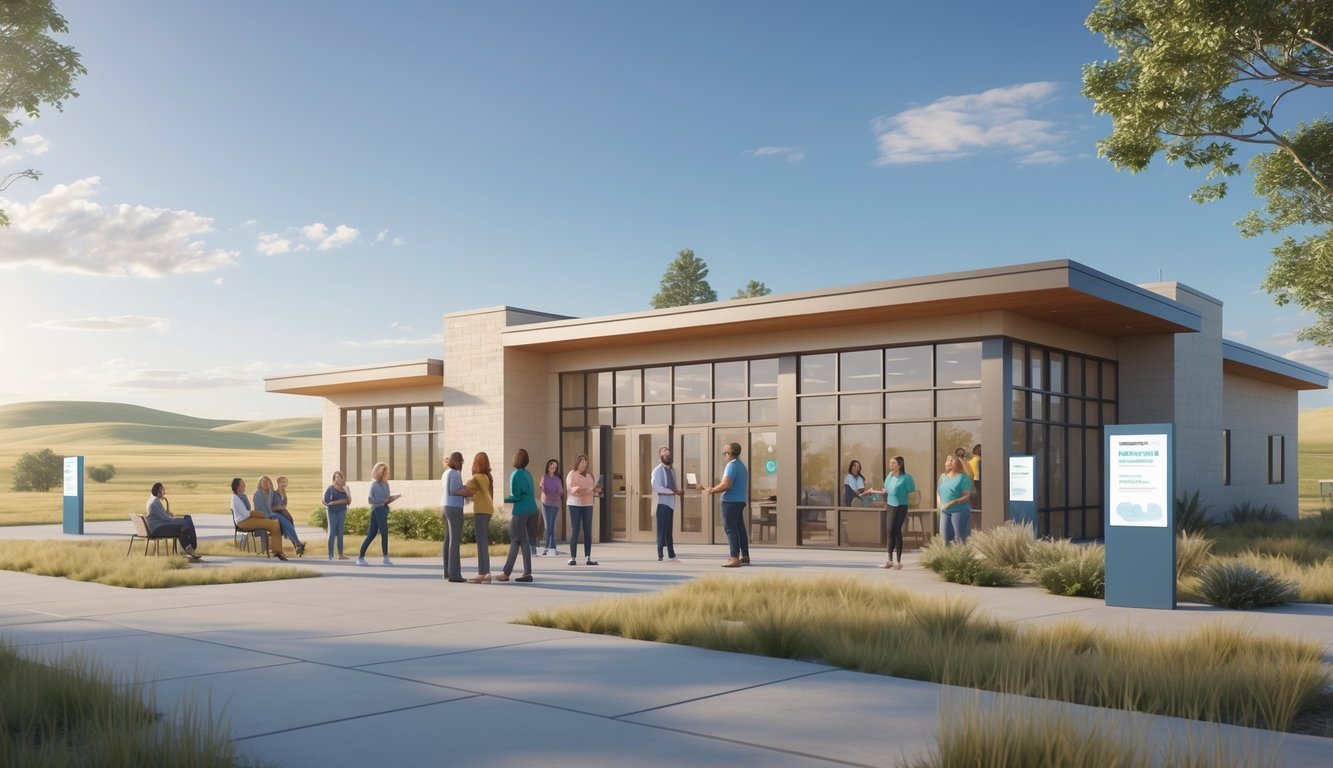
You’ll find a mix of free mental health services in North Dakota, from community programs and Medicaid waivers to nonprofit groups. Eligibility usually depends on things like income, insurance, and health needs, with most services based in cities like Fargo and Bismarck.
Crisis Intervention Services offer immediate help in emergencies. You’ll find 24-hour hotlines, mobile crisis teams, and emergency counseling.
Individual and Group Counseling are available at community mental health centers. Community mental health provides support for people who otherwise could not access mental health services.
Behavioral Health Programs focus on issues like depression, anxiety, and substance abuse. Many combine therapy and medication management.
Peer Support Services connect you with people who’ve faced their own mental health struggles. They can offer real-world advice and encouragement.
Case Management Services coordinate your care across different providers. Case managers help with appointments, transportation, and extra resources.
Income Guidelines usually follow federal poverty levels. Most free services go to households earning less than 200% of the federal poverty line.
Insurance Status matters for many programs. If you don’t have insurance, you might qualify for more free services than those who do.
Medicaid Enrollment lets you access a wide range of mental health benefits. North Dakota’s Medicaid waiver programs expand what’s available for special needs.
Residency Requirements mean you need to live in North Dakota for most state-funded programs. You’ll have to show proof of address.
Age and Disability Status can affect which programs you can use. Some are only for certain age groups or people with specific diagnoses.
Urban Centers like Fargo and Bismarck have the most free mental health options. These cities host several community centers and special programs.
Rural Areas often struggle with access. Residents in rural and tribal areas lack local access to behavioral health services.
Tribal Communities use Indian Health Service facilities and tribal health programs. These often mix traditional healing with modern mental health care.
Transportation Services help people in hard-to-reach areas. Some programs offer rides or bring services to you.
Telehealth Options make it easier to get help anywhere in the state. Many providers now do video counseling and remote support.
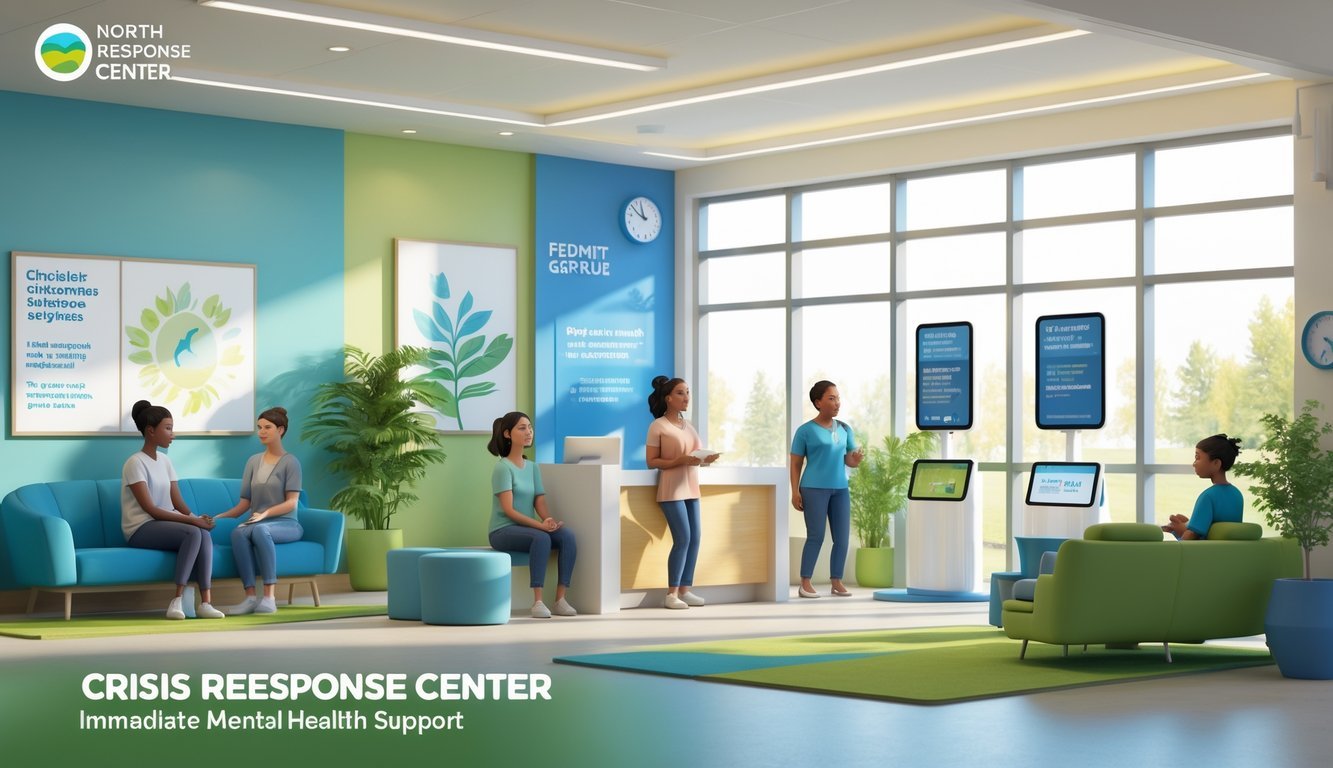
If you’re in crisis, North Dakota has several immediate support options. The 988 Suicide & Crisis Lifeline, FirstLink hotlines, and mobile crisis teams all offer emergency help.
You can reach the 988 Suicide & Crisis Lifeline for free, confidential support any time, day or night. Just call or text 988 from anywhere in North Dakota to talk to trained crisis counselors.
This national service connects you with local crisis centers. The counselors give immediate help for suicidal thoughts, mental health emergencies, or emotional distress.
What you get with 988:
988 replaced the old 10-digit National Suicide Prevention Lifeline. You don’t have to be in immediate danger to reach out.
FirstLink runs North Dakota’s main crisis hotline. They connect you with local mental health resources and offer phone support during emergencies.
Many towns have their own crisis hotlines too. These local lines often know your area’s resources better than national ones.
Typical local hotline help:
Some crisis centers also have online chat. Crisis centers provide free, confidential, compassionate help, and phone lines are usually open 24/7, depending on volunteers.
Mobile crisis teams come to you during emergencies. They respond at homes, schools, or anywhere in North Dakota.
These teams include trained mental health pros who assess your situation and help right away. They try to keep people out of ERs or hospitals if possible.
Mobile crisis teams offer:
You can reach mobile crisis teams by calling 988 or your local crisis line. Some areas have special numbers for quicker response.
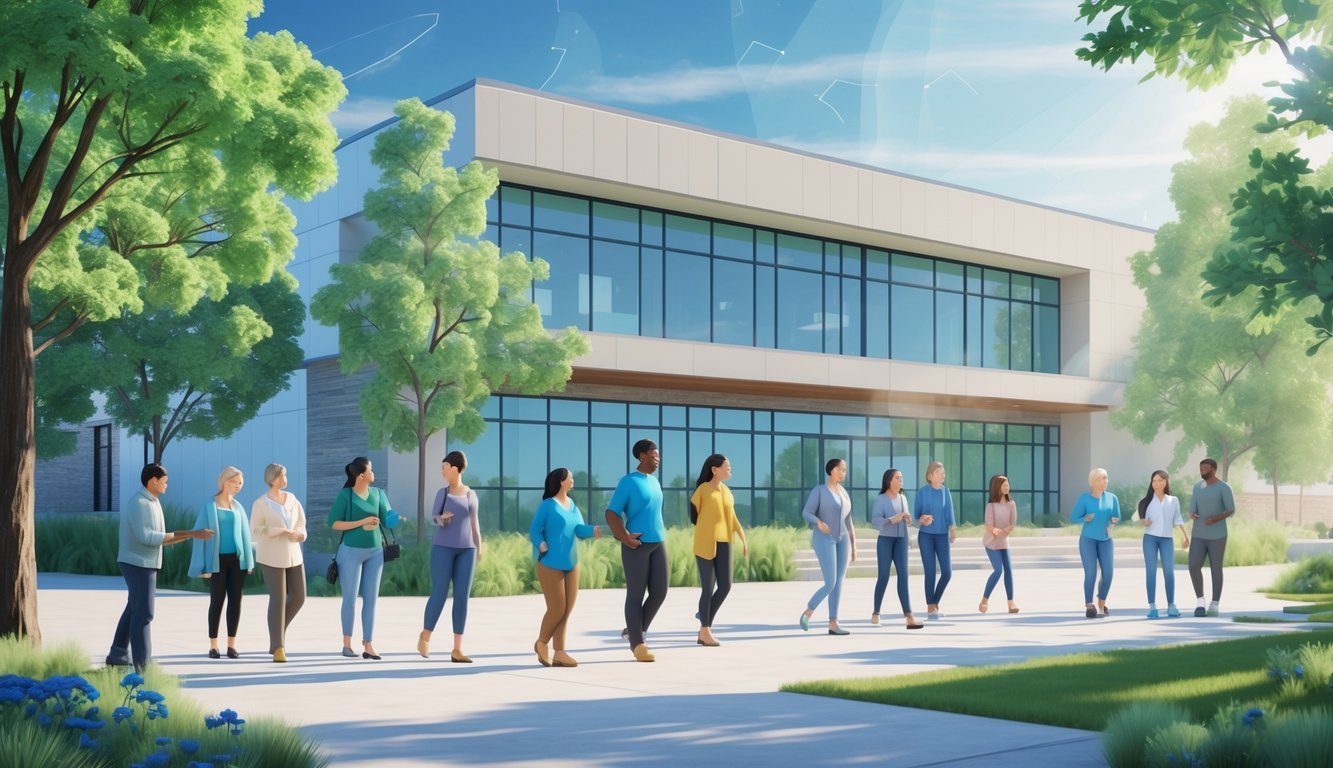
North Dakota has programs for specific needs like depression, substance use, youth services, and support for vulnerable groups. These services go beyond basic mental health care.
Licensed counselors across the state treat depression and anxiety. North Dakota uses three levels of counselor licensure to make sure you get qualified help.
Licensed Associate Professional Counselors provide basic counseling under supervision. They help you manage depression and learn coping skills.
Licensed Professional Counselors offer independent therapy for common mental health issues. They use proven methods for depression, anxiety, and mood disorders.
Licensed Professional Clinical Counselors take on tough or severe cases. They use special therapy techniques for treatment-resistant depression.
The Myrt Armstrong Recovery Center in Fargo helps adults with serious mental illness. It’s a daily drop-in spot for social activities, meals, and peer support.
Addiction treatment can be tough to access in rural and tribal areas. Communities are working to address substance misuse and fight stigma.
State-funded centers offer free detox services. These programs help you withdraw safely from alcohol or drugs with medical help.
Outpatient counseling gives ongoing support during recovery. Group sessions let you connect with others facing similar struggles.
Medication-assisted treatment mixes counseling with approved medications. This works well for opioid and alcohol addiction.
Recovery support services help you stay sober after treatment. Peer counselors who’ve been through it themselves offer guidance.
Schools in North Dakota bring mental health services to students. Counselors help kids with depression, anxiety, or behavior problems.
Family therapy looks at mental health issues affecting everyone at home. Therapists work on communication and solving conflicts.
Crisis teams handle emergencies with minors. These professionals calm things down and connect families to ongoing care.
Youth residential treatment centers give intensive care for serious conditions. They provide 24-hour supervision and focused therapy.
Early intervention programs spot mental health problems in young kids. Getting help early can keep things from getting worse later.
The North Dakota Brain Injury Network supports people with traumatic brain injuries. Resource facilitators help you find the right mental health services.
Tribal mental health programs serve Native American communities with care that respects cultural traditions. They often blend traditional and modern therapy.
Rural telehealth connects you to providers through video calls. This helps when local services aren’t available.
Refugee mental health support helps newcomers adjust to life in North Dakota. The Global Friends Coalition offers services for new arrivals and families.
Senior mental health programs focus on depression and anxiety in older adults. Home visits are available for those who can’t get out easily.
Finding free mental health care means knowing where to look and how to reach out. North Dakota has several ways to connect with providers and figure out payment options.
The 2-1-1 Helpline provides free assistance 24/7 to help you find behavioral health resources nearby. Call 211 from any phone to talk to a trained specialist.
FirstLink offers confidential support around the clock for crisis help and local referrals. You’ll connect with counselors who can guide you to the right care.
The North Dakota Mental Health Program Directory lists programs and services throughout the state. You can look up locations and types of help.
Key Contact Numbers:
Many providers use sliding fee scales based on your income. This helps people who can’t pay full price.
You don’t need insurance for crisis services like 988 or FirstLink. These emergency resources are always free, no matter your finances.
Some community programs get federal grants that pay for treatment. When you call, ask if they have grant-funded services.
Payment Options Available:
Community Connect provides care coordination and peer support services all across North Dakota. This program helps you find your way through different services and stick with your care.
Peer support specialists talk about their own recovery stories and use that experience to guide you toward helpful resources. These folks really get how tough it can be to access mental health care.
ND Cares focuses on military families and offers resources and referrals just for them. Veterans and service members can reach out for support that actually fits what they need.
Local health departments usually keep lists of free or low-cost providers in your area. If you’re looking for options nearby, just call your county health office and ask about local resources.